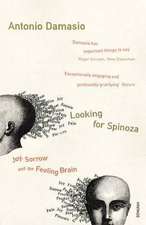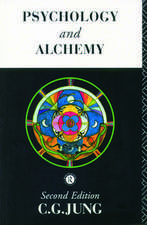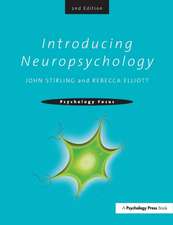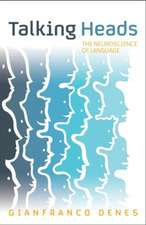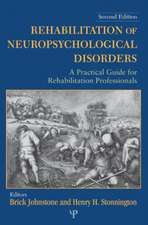Delusion and Confabulation: A Special Issue of Cognitive Neuropsychiatry: Macquarie Monographs in Cognitive Science
Editat de Robyn Langdon, Martha Turneren Limba Engleză Paperback – 14 oct 2024
| Toate formatele și edițiile | Preț | Express |
|---|---|---|
| Paperback (1) | 251.73 lei 6-8 săpt. | |
| Taylor & Francis – 14 oct 2024 | 251.73 lei 6-8 săpt. | |
| Hardback (1) | 852.27 lei 6-8 săpt. | |
| Taylor & Francis – 21 apr 2010 | 852.27 lei 6-8 săpt. |
Preț: 251.73 lei
Preț vechi: 314.01 lei
-20% Nou
Puncte Express: 378
Preț estimativ în valută:
48.17€ • 50.11$ • 39.77£
48.17€ • 50.11$ • 39.77£
Carte tipărită la comandă
Livrare economică 15-29 aprilie
Preluare comenzi: 021 569.72.76
Specificații
ISBN-13: 9781032920887
ISBN-10: 1032920882
Pagini: 376
Dimensiuni: 174 x 246 mm
Greutate: 0.7 kg
Ediția:1
Editura: Taylor & Francis
Colecția Psychology Press
Seria Macquarie Monographs in Cognitive Science
Locul publicării:Oxford, United Kingdom
ISBN-10: 1032920882
Pagini: 376
Dimensiuni: 174 x 246 mm
Greutate: 0.7 kg
Ediția:1
Editura: Taylor & Francis
Colecția Psychology Press
Seria Macquarie Monographs in Cognitive Science
Locul publicării:Oxford, United Kingdom
Public țintă
AcademicCuprins
R. Langdon, M. Turner, Delusion and Confabulation: Overlapping or Distinct Distortions of Reality? M.D. Kopelman, Varieties of Confabulation and Delusion. A. Fotopoulou, The Affective Neuropsychology of Confabulation and Delusion. K. Metcalf, R. Langdon, M. Coltheart, The Role of Personal Biases in the Explanation of Confabulation. G. Dalla Barba, M.F. Boissé, Temporal Consciousness and Confabulation: Is the Medial Temporal Lobe "Temporal"? A.R. O’Connor, C. Lever, C.J.A. Moulin, Novel Insights into False Recollection: A Model of Déjà Vécu. A. Gilboa, Strategic Retrieval, Confabulations and Delusions: Theory and Data. V.J. Carr, Beauty and Belief: William James and the Aesthetics of Delusions in Schizophrenia. R.E. Cox, A.J. Barnier, Hypnotic Illusions and Clinical Delusions: Hypnosis as a Research Method. W. Hirstein, The Misidentification Syndromes as Mindreading Disorders. M. Coltheart, P. Menzies, J. Sutton, Abductive Inference and Delusional Belief. R. McKay, M. Kinsbourne, Motivational Factors and False Claims. R. Langdon, T. Bayne, Delusion and Confabulation: Mistakes of Perceiving, Remembering and Believing. M. Turner, M. Coltheart, Confabulation and Delusion: A Common Monitoring Framework?
Descriere
People with psychiatric and neurological illness sometimes say and think the most amazing things. They might believe they are dead; claim to see, despite being blind; or "remember" things that never happened. Historical demarcations between academic disciplines dictate that these are distinct clinical phenomena – delusions versus confabulations;













